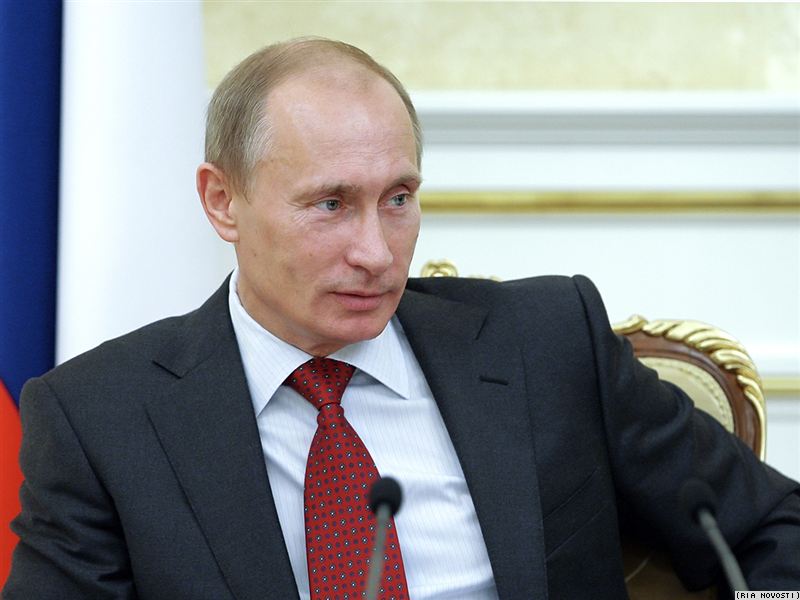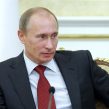
Putin Promises Economic Overhaul of North Caucasus
Publication: Eurasia Daily Monitor Volume: 7 Issue: 133
By:

On July 6, Russian Prime Minister, Vladimir Putin, outlined the government’s plans for North Caucasus development at a United Russia party gathering in the Stavropol region (www.kavkaz-uzel.ru, July 6). However, the grandiose future projects that Putin described in his speech were accompanied by much more modest actual government money infusions pledged by United Russia functionaries.
In his lengthy speech, Russia’s prime minister, who is widely assumed by both his own countrymen and foreigners to be still in charge of the country, praised massive plans to build ski resorts in five out of seven of the North Caucasian republics, including the Republic of Adygea, which is formally not part of the North Caucasian Federal District. According to Putin, the resorts are expected to create as many as 160,000 new jobs in this region of high unemployment, out of 400,000 new jobs that supposedly should be created in the next decade (www.premier.gov.ru, July 6).
At the same time United Russia did not include this project in its top priority list, which means it will not receive government money in the very near future. Instead, United Russia selected seven top priority projects of local importance, one in each of the seven subjects of the North Caucasian Federal District, which it promised to find funding for before the end of 2010 (Kommersant, July 7). The ruling party of Russia reportedly contemplates an additional investment into these and other minor projects to the tune of $200 million-$230 million (www.ng.ru, July 6). The Russian government regards curbing the unemployment rate in the North Caucasus, which exceeds 50 percent in some of its regions, as one of the main tools to stabilize the volatile territory.
Putin recalled that for the past ten years Moscow had invested and sent nearly $27 billion to the North Caucasus. The amount of financial assistance dramatically increased during this period –from $500 million per year in 2000 to $6 billion currently. He also noted special cases like Ingushetia, which is receiving a unique assistance package from Moscow worth $1 billion. The credibility of the prospects Putin described in his speech was somewhat undermined when he went on to set an unrealistically high economic growth benchmark for the North Caucasus –10 percent annually (www.premier.gov.ru, July 6). Even at the height of oil and gas prices in 2007, Russia as a whole did not achieve 10 percent. The World Bank forecast for Russian economic growth was downgraded in June to 4.5 percent in 2010 and 4.8 percent in 2011 (www.gazeta.ru, June 16). The North Caucasus, with its multiple problems, can hardly expect to see 10 percent economic growth any time soon, especially as Putin acknowledged that corruption is a significant factor both at the regional and federal level and offered no detailed remedies for it.
Putin’s presentation was designed to be the culmination of the big gathering of the United Russia party that started in Kabardino-Balkaria on July 5 and then moved on to the Stavropol region the next day. The event itself and Putin’s speech may have been aimed not so much at delivering groundbreaking reforms as at boosting local functionaries’ morale and solidifying the support of the local elites in anticipation of Russian parliamentary elections in 2011 and presidential elections in 2012. Moscow’s envoy to the North Caucasus, Aleksandr Khloponin, himself being a member of the ruling body of the United Russia party, kept a low profile during the event and was remarkably absent from media reports about the gathering.
The most basic issues of safety are still unresolved in most parts of the North Caucasus, even though the Russian prime minister tried to play down their importance. Meanwhile, in Dagestan alone 152 people have died in attacks since the start of 2010. Among those killed were reportedly 27 civilians, 58 insurgents and 67 law enforcement agents, and an additional 176 people were wounded (www.ndelo.ru, July 9). On July 10, a federal judge, Magomed Khasbulatov, was killed in Dagestan’s Untsukul district, one of the most radical districts in the republic. Another judge had been killed in the same district a month earlier (Ekho Moskvy, July 10). The leaders of United Russia reportedly declined to answer a question about how the safety of businessmen and tourists would be ensured if the party’s plans for the North Caucasus were successfully implemented (www.ng.ru, July 6).
Khloponin held a follow up press conference on July 8, in which he reiterated his focus on solving the unemployment issue in the district, which has 827,000 people unemployed or 18 percent of the working age population. Khloponin announced that the government will prioritize projects in tourism, the construction industry and agricultural sectors (www.kavkaz-uzel.ru, July 8). On the one hand, the real number of the unemployed may be higher, as many people in the region do not register as unemployed, not seeing the benefits of it. On the other hand, the percentage of the population that is unemployed may also be significantly higher than stated because in some republics, namely Chechnya, Ingushetia, Dagestan and Kabardino-Balkaria, the local authorities, with Moscow’s tacit consent, managed to beef up their respective general populations in the 2002 census. It is improbable, for instance, that Chechnya, following two devastating wars and a mass exodus of its population, can still have a population of nearly 1.3 million, substantially more than in the prewar republic.
There have been some promising public declarations of changes in Moscow’s policy toward the North Caucasus and a shift from suppressing dissident groups to economic development there. However, the advertised numbers do not appear to add up and therefore create an impression of a political public relations campaign that is either tailored to meet political ends or betrays Moscow’s real inability to change the situation in the volatile North Caucasus.




